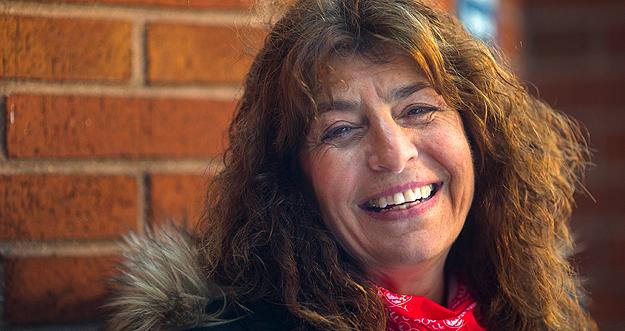COMBATING FEAR

“The only thing we have to fear is fear itself.”
Over 80 years ago, newly elected President Franklin Delano Roosevelt stated the above—now a well-known cliché. While FDR was referring to people panicking and pulling their savings out of banks during the Great Depression, his words resonate today—but about a different reality. He described such fear as “…nameless, unreasoning, unjustified terror which paralyzes needed efforts to convert retreat into advance.”
Today, we’ve become a nation victimized by fear-mongers—with an agenda. Healthy concerns about a variety of situations—that move us into action—are not a problem. They are an appropriate response to serious issues. The problem with fear is when it’s irrational, when we become victimized by it, when we’re paralyzed by it, when it isolates us and renders us powerless.
We are scared of our neighbors, of immigrants, of other nations, of new research that challenges long-held beliefs, of our differences, of our bosses and of our own potential to foment change. “Better the devil you know than the devil you don’t,” people say. What does that mean?
On the one hand, it’s a cautionary statement not to jump into something without investigation. But often we say such a thing to prevent us from stepping outside of our comfort zone (however unpleasant) in order to take a chance on a new idea, person, organization or strategy.
We need to get our act together.
Why nurses are afraid of power
It’s irrational to be intimidated by thinking we can actually fulfill our potential. Yet, many of us—particularly women—are insecure about doing just that. Nameless fear contributes greatly to these insecurities. Fear of the unknown or of false stereotypes alienates people from one another who may
otherwise discover that they have much in common.
It’s a no brainer to consider that people (particularly those without resources or wealth) have much more power together than they do alone. This is the fundamental concept behind the formation of labor unions. And yet, many workers are afraid to form unions.
Certainly fears of retribution by nasty bosses are justified, but what can they do to us if we’re united, if everyone is on program, if we use the strength of our numbers to intimidate the bosses instead of the other way around? As painful as it is to say, too many of us are more comfortable being victims than taking the initiative to win, change the paradigm, and redefine the power relations we confront. We’re frightened of our potential power because we don’t recognize our own value and feel we cannot fulfill the responsibilities involved in transforming our situations.
The process of disempowerment
Nurses are constantly harangued, told to work faster and better. We’re seldom respected for the work we do. We’re accused of being malcontents when we complain about conditions or systems—and then we are blamed when something goes wrong.
We jump through hoops to defend the very institutions that exploit us. How many of us panic along with the bosses when JCAHO comes? What we are really doing is covering for the hospital so it doesn’t get cited for inadequate supplies, staff, cleanliness and functional systems. It’s like covering the bruises when ACS comes to see a troubled family!
How many of us are thrilled to participate in councils and “shared governance” models—only to learn that our most significant suggestions (e.g., more staff, better equipment, superior education) are rejected due to “the budget” or some other excuse? How many of us accept “the budget” excuse, knowing full well that top administration receives exorbitant salaries, consultants are paid millions and superficial amenities and facades require dollars that should be spent on patient care or employees?
There is terminology for this behavior: it is known as the psychology of oppression. We internalize the definition of who we are by the very forces that oppress us.
Breaking the chains
In NYSNA, every conscious act—from filling out a POA, signing a union card, voting in a union election, becoming a Contract Action Team member, running for Delegate (we have an important Delegate Election right now in NYSNA—the ability to form a State Assembly of rank-and-file nurses who make union decisions)—is an act of defiance against oppressive conditions.
Taking a stand is the first step. Going public to expose conditions in our workplaces is an act of advocacy. Taking a strike vote—even going on strike—to defend our patients’ rights to quality care is an act of personal sacrifice and commitment to our communities.
Voting for a union—as the Putnam and AMC nurses did this past year—is both an individual and collective act of courage, facing down intimidation and threats.
If you never take the plunge, you will never know the sweet taste of victory.